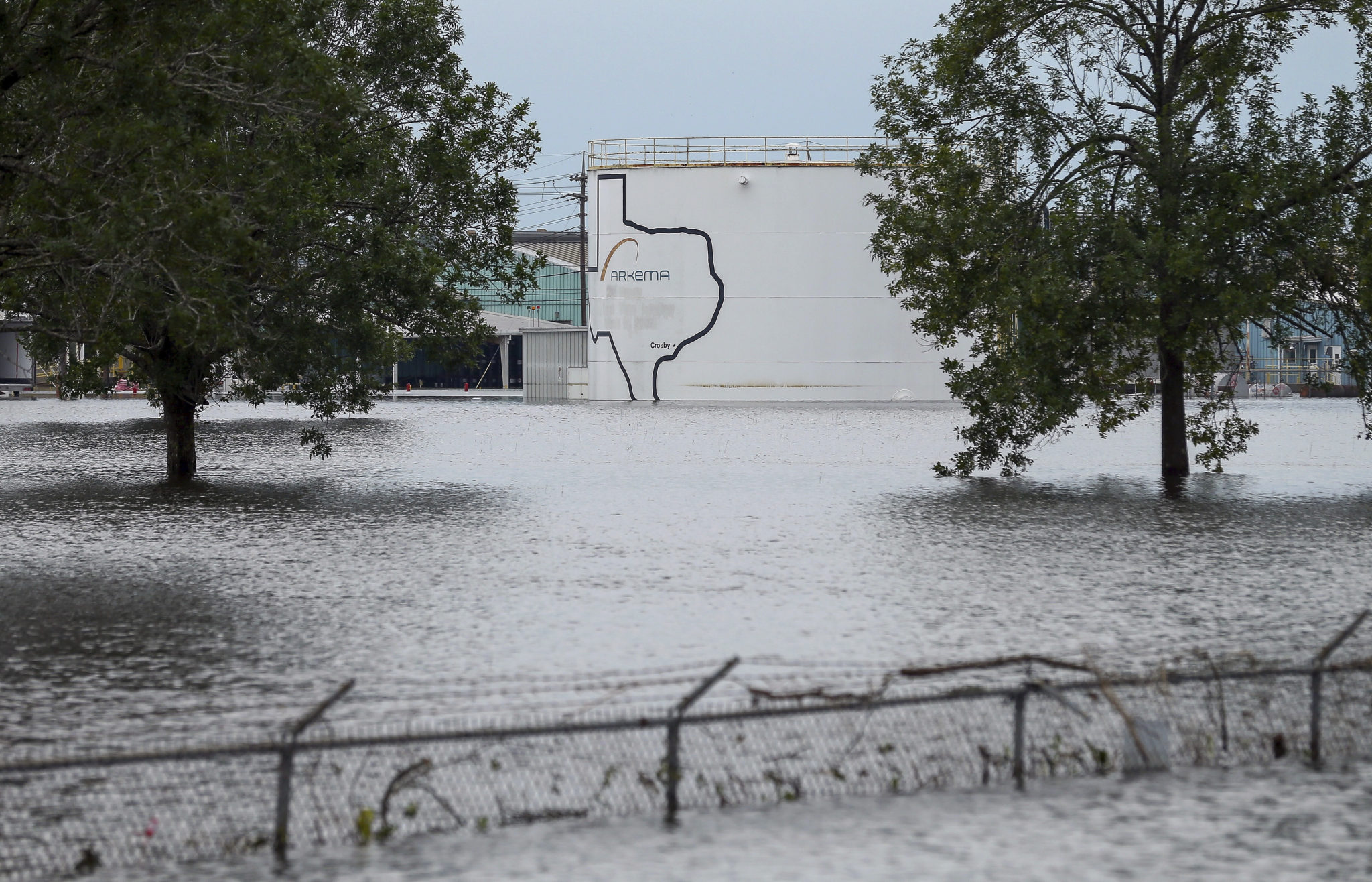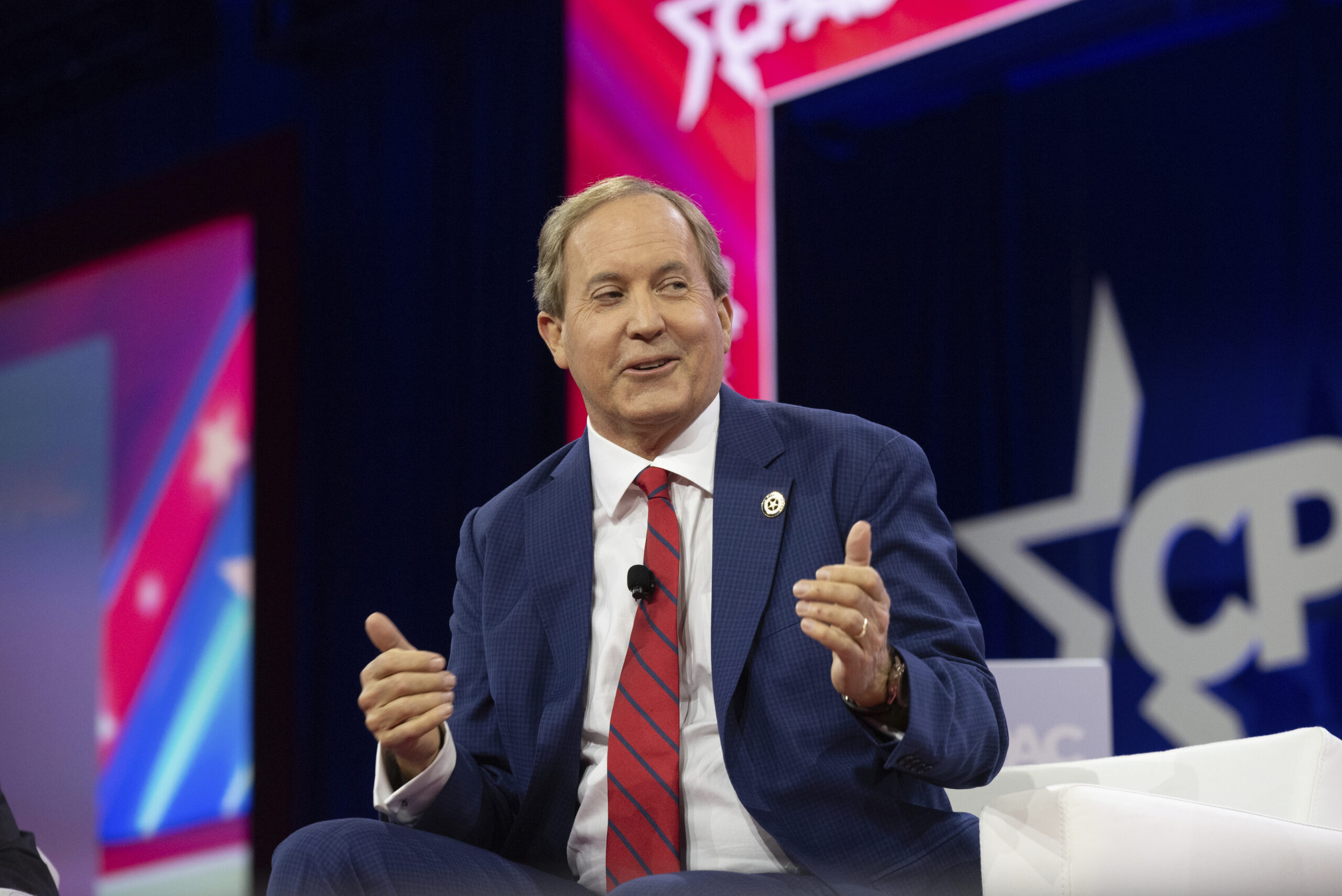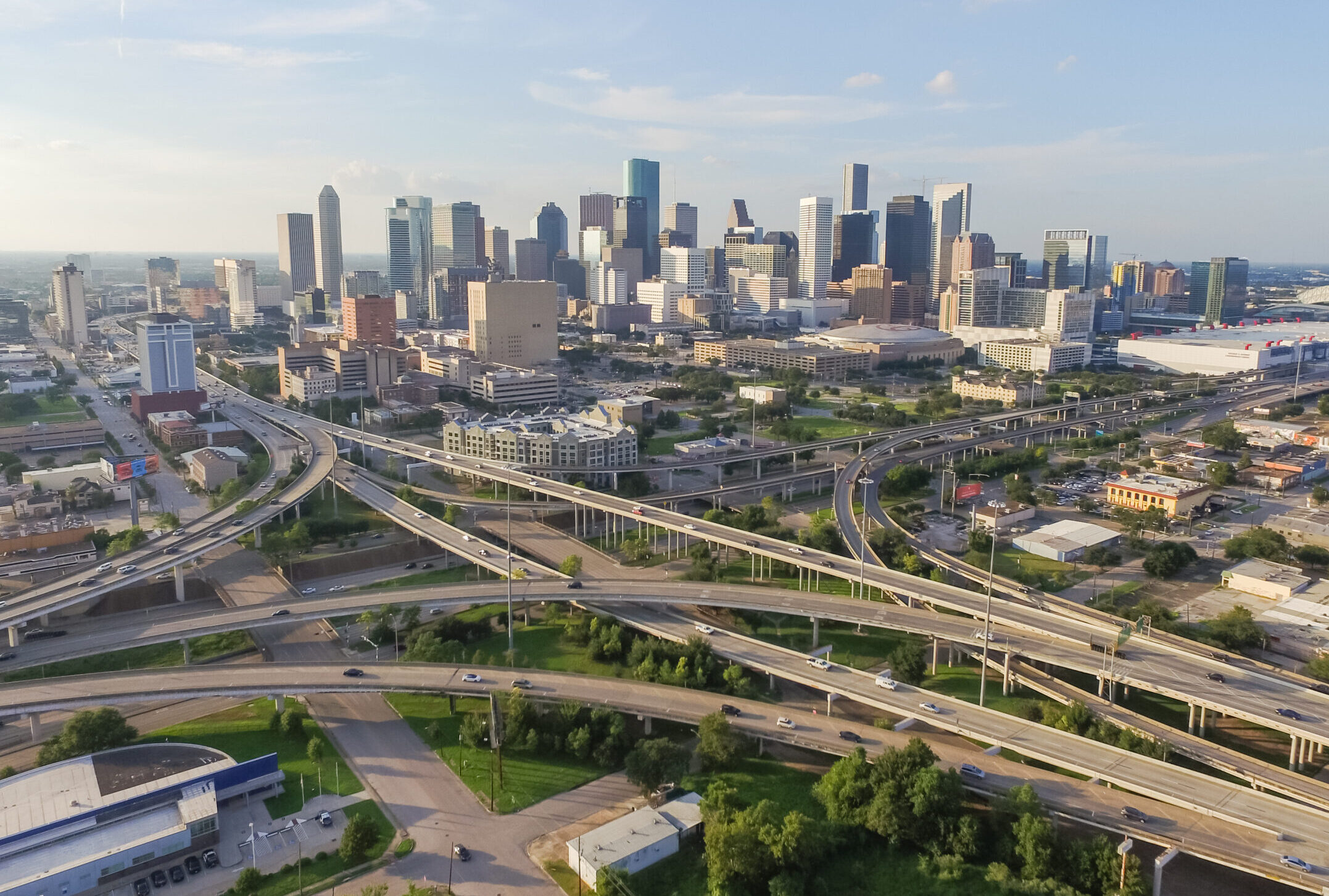
Your Right Not to Know About that Exploding Chemical Plant Near Houston
Texas lets companies keep chemical inventories secret, even when their plants become dangerous enough to evacuate the surrounding neighborhood.

Above: The Arkema chemical plant in Crosby was flooded by Hurricane Harvey.
On Tuesday, officials ordered the evacuation of hundreds of houses within a 1.5-mile radius of the flood-ravaged Arkema chemical plant in Crosby, about 20 miles northeast of Houston, after they saw a list of compounds at the site. On Wednesday, the company’s CEO refused to publicly release the inventory of chemicals inside his plant, even as the company warned of potential explosions. Early Thursday morning, containers of volatile organic peroxides started exploding.
This alarming uncertainty is state-sanctioned. Texas allows petrochemical plants to keep chemical inventories secret, even when those plants have become dangerous enough to evacuate the surrounding neighborhood. Why this basic information is no longer public speaks to the absurdity with which Texas, home to the nation’s petrochemical epicenter, regulates the industry.
For decades, state officials treated so-called Tier Two inventories — where facilities list the types and quantities of potentially dangerous chemicals on-site — like public records. The need for easy, quick access to that information became obvious in 2013 when a fire at a fertilizer plant in West, Texas, ignited 5,000 pounds of ammonium nitrate. The explosion registered a 2.1 on the Richter scale, injured more than 160 people and left 15 dead, including a dozen firefighters who didn’t know what was stored at the plant or how dangerous it was. Media and chemical safety experts started asking for Tier Two reports to map potential powder kegs across the state.
That’s when then-Attorney General Greg Abbott stepped in. In the middle of his first successful campaign for governor, Abbott ruled that facilities and government agencies could withhold those reports by citing a decade-old anti-terrorism law meant to block the release of information that could be “likely to assist in the construction of an explosive weapon.” When critics pushed back, Abbott told Texans to “just drive around” and ask the plant operators for that information if they’re so concerned.
Last year’s prescient investigation by the Houston Chronicle and Texas A&M University’s MKO Process Safety Center, which ranked the Arkema plant in Crosby among those with the “highest potential for harm to the public,” detailed how Abbott’s ruling emboldened industry, public agencies and even emergency management officials to start withholding those reports.
Hence the confusion this week as reporters, experts and community members struggled to assess the danger posed by the flooded plant. As Gretchen Goldman with the Union of Concerned Scientists wrote on Thursday, “We are witnessing in real time the confusion that results from limited access to chemical safety information in an emergency situation.”
That transparency for chemical companies worsened after a disaster like West only hints at larger problems with how the industry is policed. The Environmental Protection Agency’s risk management program for such facilities ignores whole classes of potentially explosive chemicals. The Occupational Safety and Health Administration (OSHA) doesn’t inspect most plants. Even when the agency does and finds a problem, it can only impose slap-on-the-wrist fines.
Consider the 2014 chemical leak at a DuPont plant in La Porte, about 20 miles south of the Arkema facility, that killed four workers. The following year, OSHA squarely blamed DuPont for the preventable loss of life, saying the company had failed to fix persistent problems that threatened workers and the surrounding community. For more than a dozen willful, repeat or serious violations, OSHA fined DuPont some $370,000 — chump change for a company that posted $35 billion in annual revenue that year.
On Thursday, the U.S. Chemical Safety Board announced that it’s investigating the explosions at the Arkema plant. The basic information investigators have asked for includes chemical processes used at the Crosby site; the specific chemicals stored, used and produced there; and “implications for emergency preparedness and response efforts.”
On Friday, Arkema officials again refused to make public the plant’s chemical inventory, as the Chronicle first reported, even though they’d admitted continued explosions and fires at the facility are likely. CEO Richard Rowe called it a balancing act between “the public’s right to know and the public’s right to be secure.”


